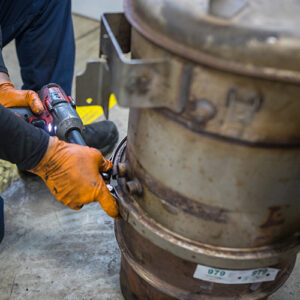6 Tips To Keep Your Fleet Of Dump Trucks In Great Shape
Maintaining the safety, productivity, and on-the-road status of your dump trucks and drivers is critical to meeting your company’s sales and service objectives.
So, what can you do to maintain the health of your fleet vehicles?
In this article we will share 6 valuable tips with you on how to keep your fleet of dump trucks in great shape at all times.
If you follow these tips, you will be able to secure outstanding results at all times. Use the following checklist to help you manage your fleet.
Table of Contents
Be familiar with the owner's manual of your dump truck
Before you start doing any heavy lifting, you should find the owner’s handbook for your vehicle. This is true for any vehicle but is particularly important for fleet managers.
The owner’s manual will assist you in understanding your dump trucks and caring for them. The owner’s handbook will highlight all the maintenance inspections your dump truck requires.
You may even get advice on which truck components are ideal for your vehicle.
You’ll also get a chart to aid in keeping track of your maintenance history.
To acquire detailed instructions on maintaining your vehicle, go for the owner’s handbook. Continue reading the instructions to get your truck maintenance off to a good start.
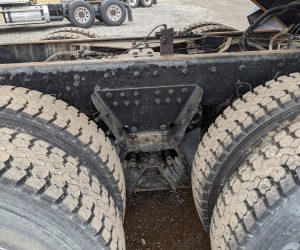
Examine the tires on your dump truck fleet
Tires are an essential component of your truck and need special maintenance. Unlike other vehicle tires, truck tires are subjected to heavy loads regularly, which makes them more likely to wear out and fail in the long run.
Check the air pressure in your fleet’s tires before hitting the road. Check the owner’s handbook to see whether the tire pressure is correct. Most vehicle manufacturers recommend a PSI of 85 to 105. Remember to account for temperature variations, but don’t go overboard.
Next, inspect the tire treads for extreme wear that might jeopardize the truck’s traction. It’s also critical that the tires wear evenly to avoid misalignment. Turn the tires a quarter turn around if the vehicle will be idle for an extended period to prevent straining one region of the tires.
Inspect the batteries in your dump trucks
Check the batteries beneath the truck’s hood for indications of corrosion, and make sure all connections are secure. If you keep the vehicle parked for an extended time, ensure the battery is removed.
It’s worth mentioning that some dump trucks have multiple batteries. One battery powers the vehicle, while the other powers the dumping mechanism. This guarantees that the dumping mechanism is smooth and powerful enough to lift hefty weights.
If you want to get the most out of your truck, please fully charge all the batteries. Connect the engine battery to a trickle charger whenever the vehicle is unused. This guarantees that the engine works smoothly during the whole operation.
On the other hand, the dumping body batteries must be charged every weekend. Remember to do so since the dumping mechanism’s hydraulics will be severely harmed if you don’t.
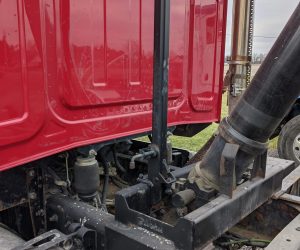
Pay attention to hydraulics of your dump truck fleet
This is likely the most complex component of dump truck maintenance. Because few vehicles have hydraulic systems for raising and lowering huge weights. You can also refer to your owner’s handbook for guidance on best practices for maintaining the truck’s hydraulic system.
The hydraulic system must be kept in good working order for the truck to raise and lower goods smoothly. It also prevents the dump body from becoming trapped or resting flat during raising. If the dump body becomes stuck, it’s time to inspect the coils and maybe replace them.
If the dump body becomes caught in the dumping process, release the nuts and swap the coils. This will enable you to lower the dumper body and drive to a truck repair center. Switching the coils isn’t a long-term solution, make plans for future maintenance.
Don't forget about the engine
Your dump truck’s engine is its backbone. As a result, you must properly maintain your engine to get the most out of your truck.
How do you go about doing that?
Engine oil and gearbox fluid should be changed on a regular basis.
Likewise, allowing the engine to breathe fresh air now and again with new filters would be best.
It is also good to check the engine belts for wear and replace them if necessary.
You may also check the engine for any leaks visually. By looking at the oil filter, you will be able to understand its condition better. You may replace the oil filter if necessary.
These are just a few dump engine maintenance suggestions.
Consider employing a professional repair to maintain your engine in tip-top form. It’s often preferable to delegate heavy equipment maintenance to professionals.
Maintain the dump truck's cleanliness
Although trucks must go through muddy and dusty conditions, this does not imply they should be left unclean.
Every trucking company has a reputation to protect, and dirty vehicles harm that image. Ensure your vehicles are pristine inside and out, including the mirrors and lights.
Final words
The information provided above should make truck maintenance easier for fleet managers. Dump trucks are an essential piece of equipment, so make sure you look after them.
It’s always recommended to seek expert diesel repair assistance. You will be able to protect your investment by adhering to these tips and ensuring the protection of your fleet.
Check Out More Truck News
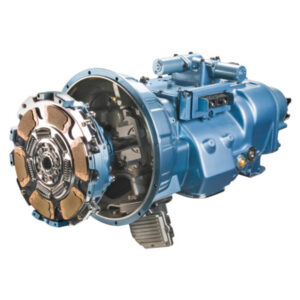
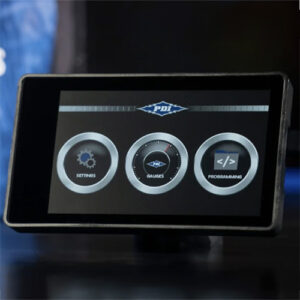
Enhancing Your Truck’s Performance with PDI Diesel Performance Parts
